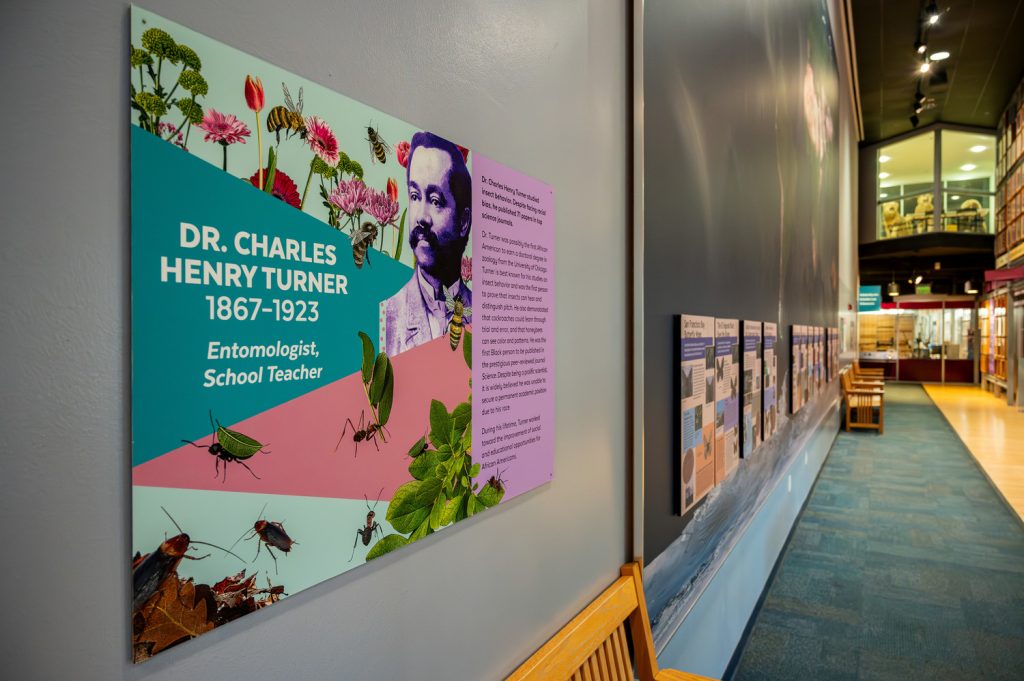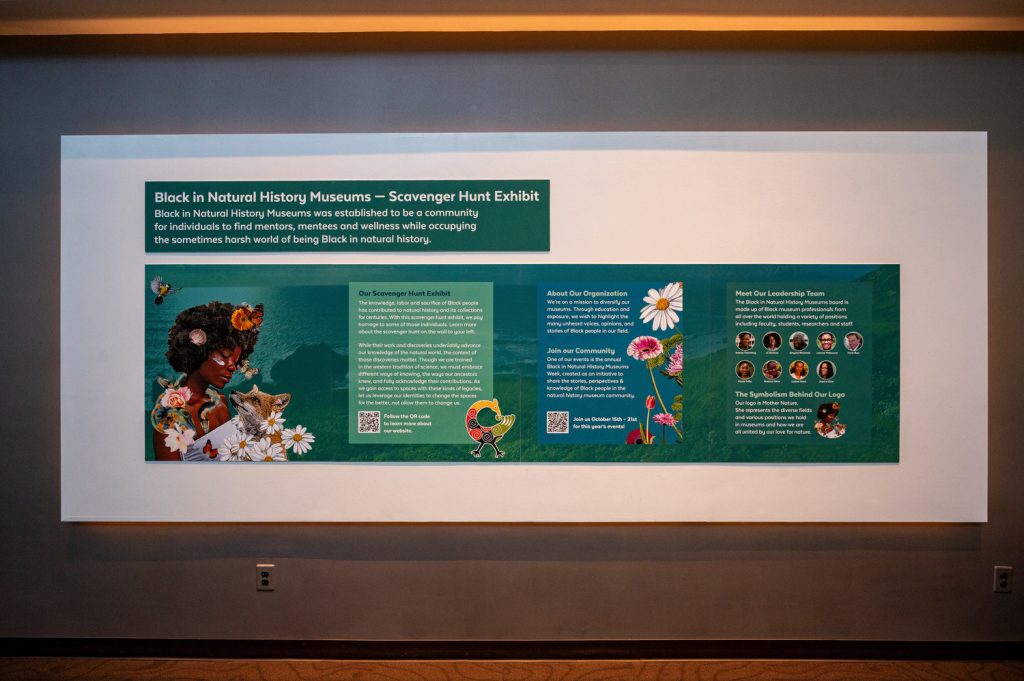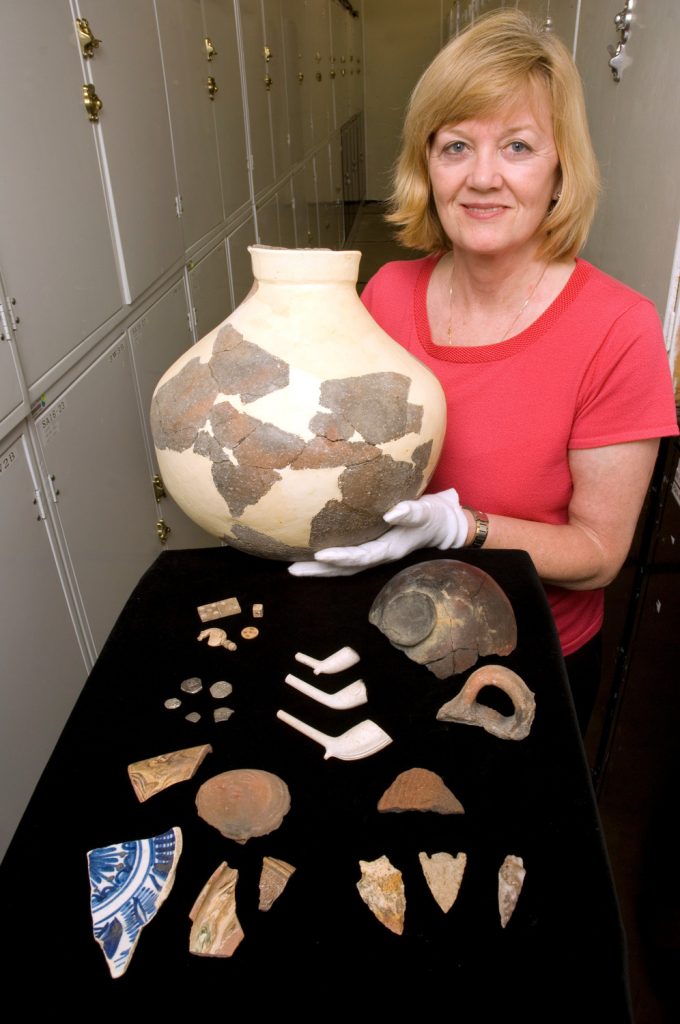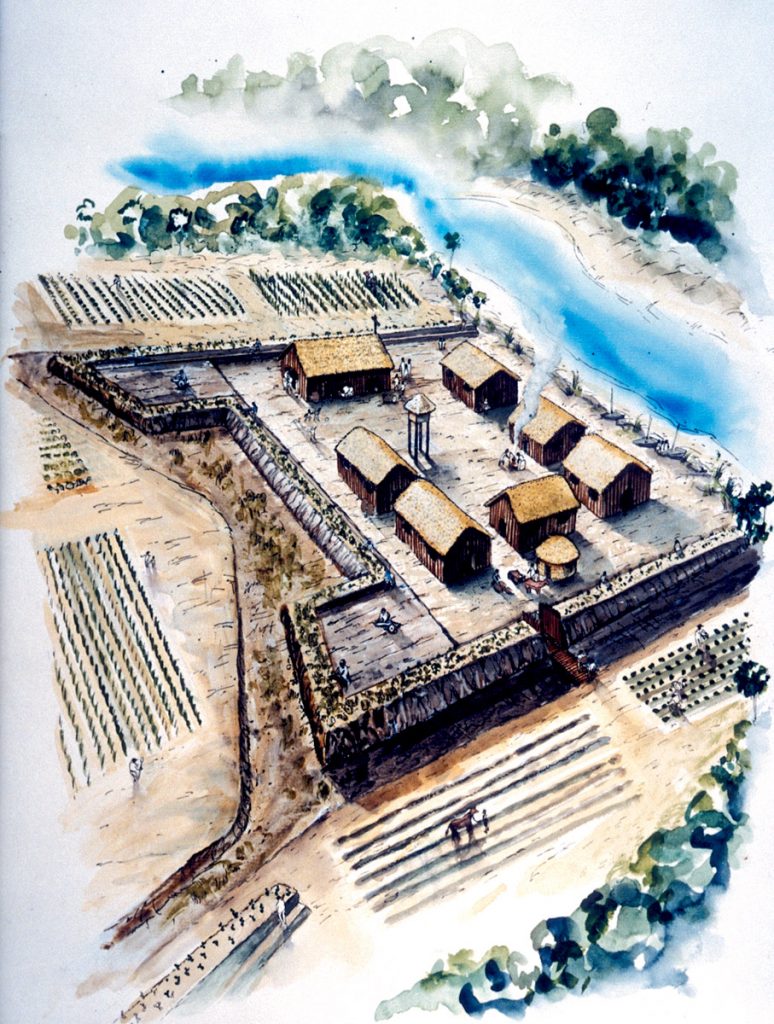As we step into the month of February, the Florida Museum of Natural History commemorates Black History Month by spotlighting Black contributions to the rich landscape of science and natural history. Celebrate Black History Month by participating in a panel discussion, visiting museum exhibits and learning about historic sites close to home.
Black in Natural History Museums Celebration
In celebration of Black History month, the Florida Museum invites visitors for a free, fun-filled afternoon exploring the wide variety of careers available in the museum industry on Saturday, Feb. 24 from 1 to 4 p.m. Meet scientists, educators and designers from around the country and hear about their personal insights and experiences in a dynamic panel discussion.
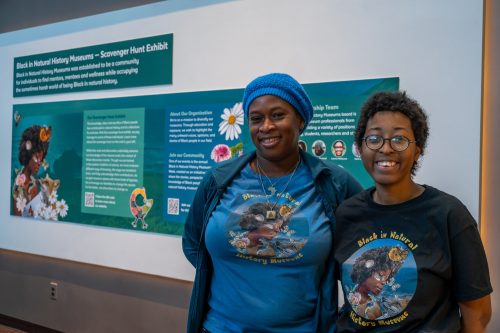 The panelists include Dr. Jessica Ware, an Entomologist at the American Museum of Natural History; Dr. Hank Bart, the Director of Fishes at the Tulane University Biodiversity Research Institute (TUBRI); Hadeel Saad, a graduate student and Evolutionary Biologist at the University of Michigan; and Brianna Mims, a graduate student and Herpetologist at the American Museum of History.
The panelists include Dr. Jessica Ware, an Entomologist at the American Museum of Natural History; Dr. Hank Bart, the Director of Fishes at the Tulane University Biodiversity Research Institute (TUBRI); Hadeel Saad, a graduate student and Evolutionary Biologist at the University of Michigan; and Brianna Mims, a graduate student and Herpetologist at the American Museum of History.
Moderating the discussion is Adania Flemming, President of the Black in Natural History Museums organization and a doctoral candidate in the University of Florida’s department of biology.
Scavenger Hunt Exhibit
Embark on a scavenger hunt to uncover the rich history of sacrifice, knowledge, and labor by Black individuals in natural history museums. Seventeen profiles, each strategically placed near a relevant exhibit throughout the museum, shed light on the contributions of Black researchers, exhibit designers, and curators spanning 300 years across eight fields of study. Visitors can discover the impactful work of historical figures such as the collector Majoe and artist John Tyley, alongside insights into the contributions of modern scientists like entomologist Jessica Ware and paleontologist Cameron Muskelly.
This exhibit was created by the Black in Natural History Museums organization and designed by Alnycea Blackwell, their vice president of graphic design.
Fort Mose
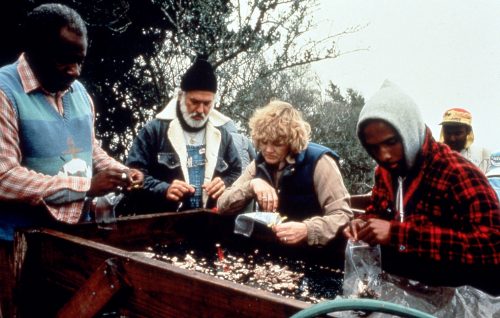 Travelers will feel like they have stepped back in time when visiting Fort Mose in St. Augustine, FL, the site of the first legally sanctioned free Black town in the United States. Over 250 years ago, enslaved Africans sought freedom by escaping English plantations in the Carolinas. By the late 1600s, the promise of freedom for those who converted to Catholicism led to the establishment of Fort Mose in 1738. Nearly lost to time, the fort was rediscovered in the 1980s by Florida Museum archaeologist Kathleen Deagan.
Travelers will feel like they have stepped back in time when visiting Fort Mose in St. Augustine, FL, the site of the first legally sanctioned free Black town in the United States. Over 250 years ago, enslaved Africans sought freedom by escaping English plantations in the Carolinas. By the late 1600s, the promise of freedom for those who converted to Catholicism led to the establishment of Fort Mose in 1738. Nearly lost to time, the fort was rediscovered in the 1980s by Florida Museum archaeologist Kathleen Deagan.
The site, now a state park and UNESCO Slave Route Project Site of Memory, provides an engaging interpretation of Fort Mose’s history, showcasing the recovered artifacts that offer insights into aspects of daily life such as cooking, construction, defense, religion and entertainment.
More
Washing Away History panel discussions – As part of the Resilience: Black History in St. Augustine project, the George A. Smathers Libraries at the University of Florida and the Lincolnville Museum and Cultural Center hosted virtual panels on Fort Mose that include our Darcie MacMahon and Kathleen Deagan as guests.
